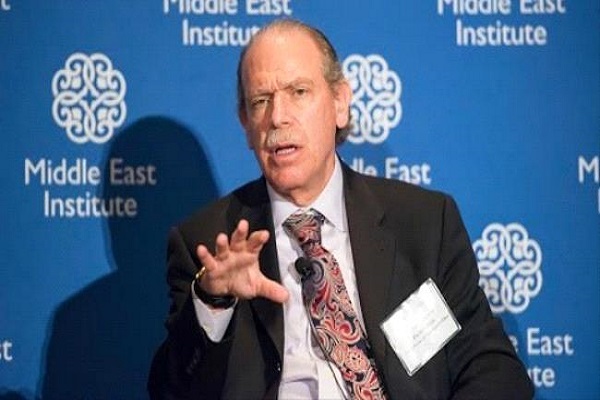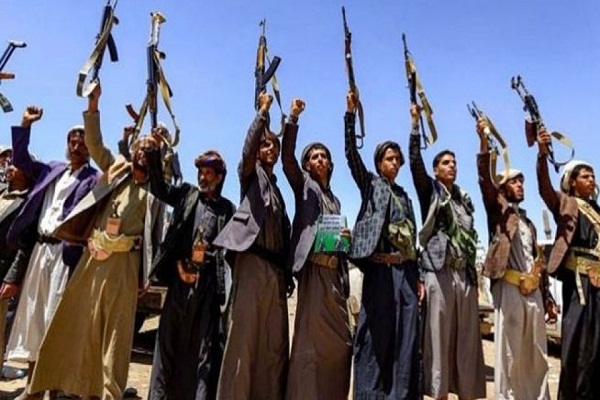Resolution of Fighting Will Be Decided by Yemenis: Former US Envoy

“The nature of the Yemen conflict is primarily a civil war and the ultimate resolution of the fighting will be decided by the Yemenis themselves, Gerald Michael Feierstein told IQNA in an interview
Feierstein was the ambassador to Yemen under former US President Barack Obama from September 2010 to October 2013. Since December 2013, Feierstein has served as Principal Deputy Assistant Secretary of State for Near East Affairs in the US Department of State.
Following is the full text of the interview:
IQNA: Recent statements by US officials about a halt to arms sales to Saudi Arabia have been hailed by an Iranian Foreign Ministry spokesman. Some believe the US government's move is a green light to Iran for new talks between Washington and Tehran. What are your thoughts on this?
Feierstein: The Biden administration has announced that it would end the sale to Saudi Arabia of weapons systems used for offensive operations in the conflict in Yemen. At the same time, the administration reiterated that it would continue to support measures required for the defense of Saudi sovereignty and territory. Thus, the restrictions on arms sales to Saudi Arabia are limited and the US commitment to sustain its overall support for Saudi security is unchanged.
The administration has been clear that it seeks to re-engage with Iran but that is a separate issue from the US-Saudi security relationship.
IQNA: There have been new statements from US officials emphasizing the need for an end to the Yemeni war as soon as possible. What is the reason for this policy change by the Biden administration?
Feierstein: The position of the Biden administration reflects the views that the President expressed in 2020 during his presidential campaign and also reflects the views of a large number of Americans, especially those who support the Democratic Party. The view is driven by a perception that the war has caused enormous harm to innocent Yemeni civilians, the humanitarian situation is catastrophic, and the US, as a friend and partner of the Yemeni government and its regional coalition partners, has a special responsibility to help end the fighting.
IQNA: What were the origins of the civil war in Yemen and the military invasion of Saudi Arabia?
Feierstein: In my view, the current civil conflict in Yemen is the continuation of a cycle of violence and instability that has persisted for decades and reflects the failure of Yemeni governments and political elites to address the demands of the Yemeni population for political, economic, and social reforms.
The immediate cause of the current conflict was the Houthi “coup d’etat” against the “legitimate government” of Abd Rabbuh Mansour Hadi in 2014 and their effort to seize control over the country by force. Concerns over the Houthi aggression triggered the decision by the Saudis, with the support of the US and the international community, to intervene.

IQNA: What is the role of regional powers in ending the war in Yemen?
Feierstein: The nature of the Yemen conflict is primarily a civil war and the ultimate resolution of the fighting will be decided by the Yemenis themselves. Nevertheless, external powers, especially Saudi Arabia and Iran, can play an important role in pressing the Houthis and the Hadi government to return to the negotiating table and reach an agreement on a political way forward.
IQNA: Some believe that Biden's recent actions, such as revoking the blacklisting of the Houthi Ansarullah movement, are aimed at encouraging the group to start peace talks with other parties to the conflict. What do you think?
Feierstein: The decision to reverse the decision by the Trump administration to designate the Houthis as a Foreign Terrorist Organization was taken largely because there was an understanding in the administration that the designation would exacerbate the humanitarian crisis in Yemen without affecting the Houthis directly. The administration hopes, however, that the Houthis will take advantage of this decision to halt its offensive military activities and return to the negotiating table to reach a political resolution of the crisis.
IQNA: You served as the last US ambassador to Yemen. Based on your experiences of Yemeni society, what do you think will be the fate of this war?
Feierstein: This civil war will end ultimately as all wars do end. The important issue for Yemen is what happens after that. In 2011-2012, Yemenis of all backgrounds and political views came together to work on a roadmap not only to address the immediate political upheaval but to try to solve Yemen’s long-standing political, economic, and social challenges. That work continued until the Houthi coup in 2014. Hopefully, once the fighting is ended, Yemenis will be able to go back to the negotiating table to complete the reform process and take steps, with support from the international community, to build a more stable, prosperous, and democratic future.
Interview by Mohammad Hassan Goodarzi
 Most Commented
Most Commented 


